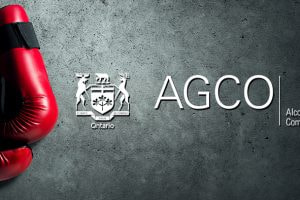Ontario Set For $2.8bn Revenue Drop Due to legalisation
The Canadian province of Ontario could see a drop of $2.8bn in tax revenues over the next five years due to the introduction of legalisation of igaming, a report claims. The report states that authorities could see a drop of $550m annually due to online operations.

Online Gambling Will Hurt Revenues Claims Report © Pixabay.
A report commissioned by land-based operator Great Canadian Gaming has claimed that the Canadian province of Ontario could lose as much as $2.8bn in tax revenues due to the legalisation of igaming.
The report claims that online gambling will severely impact land-based operators, which will, in turn, lead to a decline in revenues which the report claims will total $2.8bn over the next five years.
Pre-Covid, land-based gaming in Ontario contributed an estimated $2.5bn to the local economy via taxation. However, this figure has plummeted post-pandemic as casinos and retail establishments have been forced to close or operate with reduced occupancy.
The province has also been hit hard by international travel bans that have been introduced. For example, the US introduced rules which meant tourist hotspots such as Niagara Falls and Windsor were starved of the footfall from American tourists.
December was supposed to have seen the launch of igaming and sports betting in Ontario, but delays in drafting policy conditions, data management and the finalisation of security requirements have seen this date slip.
This delay has had a knock-on effect, with many giants in the US igaming and sports betting markets waiting for confirmation of the rules and are giving themselves time to implement any changes they would need to make to their operations to operate in the province.
There is also the chance of further delays once the igaming and sports betting framework is known, with legal challenges expected from land-based operators and other stakeholders.
The Toronto Star newspaper has cited five inside sources over the delay, and they report:
“While certain details of Ontario’s Internet gaming initiative have yet to be finalised, there are indicators that a significant amount of decision-making power and business risk will rest with private operators,” the report stated.
“As a result, there is legal risk with respect to whether iGaming Ontario meets the “conduct and manage” threshold set out in the Criminal Code.
“Consideration for whether a province has illegally delegated the “conduct and manage” function in a gaming scheme to a private entity has been the subject of past legal challenges in Canada.
The newspaper also highlights a potential conflict of interest as the Alcohol and Gaming Commission of Ontario (AGCO) would control Ontario’s iGaming operation.
When Ontario finally opens online operations, the potential returns for those entering the market are significant.
The annual taxation rate of 20% on all igaming sites operated in Ontario is one of the lowest of anywhere globally. Moreover, it is far lower than the 55% net tax rate that land-based operators must pay.
The report that Great Canadian Gaming commissioned states: “If an open-licence e-gaming model is implemented in Ontario, e-casino would capture a significant share of the total casino market.”
The report suggests that 25% of the land-based industry workforce, a number which exceeds 2,500, are at risk once online operations go live.
Great Canadian Gaming CEO Tony Rodio said of the report’s findings: The report includes critical learnings from other jurisdictions that introduced iGaming and cannibalised land-based operators in the process.
“While we support igaming in principle, the Ontario government needs to take the time to get this right,” Rodio added.
However, DraftKings SVP Jeffrey Hass believes there will be no change to customer behaviour regarding land-based operations. However, he does see a benefit for Ontario as off-shore customers will move to legal alternatives.
“People who are playing in online casinos and online sportsbooks and online poker rooms will continue to do so, except they’re going to go from playing off-shore to onshore.
“And anybody who continues to walk into real casinos in order to play games there will continue to do so,” Haas added.



